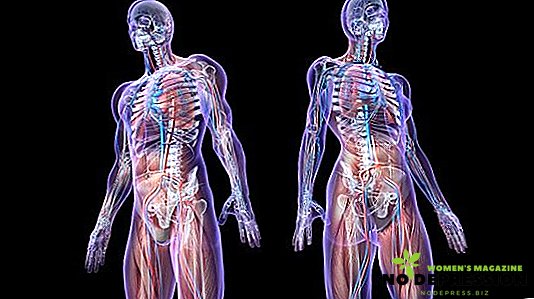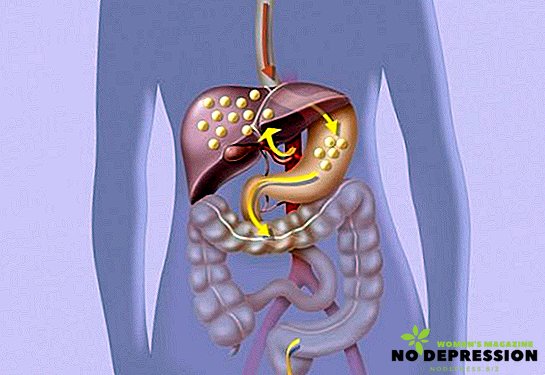At 24 weeks, the baby is already like a full-term baby. The skin color is already closer to pink than bright red. However, it is still thickly covered with original lubricant. His face, arms and legs are rounded due to the formation of subcutaneous fat. Eyelashes and eyebrows become more noticeable.

Fetal development at 23-24 weeks of pregnancy
The fetus is already preparing for its birth. In his body, oxytocin and vasopressin, hormones that contribute to the development of labor, begin to form and flow into the blood.
The digestive system of the fetus is already so well developed that it can swallow the amniotic fluid. This process helps prepare the digestive tract to digest food after birth. During this period, the child is able to swallow about 500 ml of the amniotic fluid, which serves as the main source of nutrients for his body.
The baby has already formed all the senses. He can discern taste, hears, sees and feels touch. In this regard, it increases the diversity of reactions to external stimuli. For example, he squints from the bright light directed at the mother's abdomen, may shudder with loud music.
The parameters of fetal development at week 23-24:
| Weight | 530 g |
| Body length | 21 cm |
| Head diameter | 59 mm |
| Belly diameter | 60 mm |
| The diameter of the chest | 60 mm |
Changes in the body of a woman
By the 24th week of pregnancy, the bottom of the uterus already rises by 24 cm above the pubis. The abdominal circumference increases by 1 cm weekly and depends mainly on the size of the subcutaneous fatty layer of the mother's abdomen. All this leads to the fact that the skin on the abdomen is gradually stretched, the navel begins to smooth out, which can later bulge out.
 Also in this period the pigmentation of the midline of the abdomen increases, and its color approaches the dark brown one. The breast also undergoes changes - the pigmentation of the isolae (areola) increases, the breast further increases in volume.
Also in this period the pigmentation of the midline of the abdomen increases, and its color approaches the dark brown one. The breast also undergoes changes - the pigmentation of the isolae (areola) increases, the breast further increases in volume.
Since by the sixth month of pregnancy, fetal activity increases, and its intensive growth continues, the expectant mother's appetite begins to increase. By this time, the weight of the pregnant woman increases by 4.5-6 kg.
The movements of the baby for a period of 23-24 weeks become already more tangible and distinct. Particularly noticeable movements are at the moment of complete relaxation of a woman, which is why many people think that the child becomes active just before bedtime.
At this time, there is no need to worry about the irregularity and inconstancy of the movements, because each child has a different need for the number of movements.
Undergoes changes and psychological state of women. Nature made sure that all the thoughts and experiences of a pregnant woman were directed only at her and her unborn child, and created the so-called dominant of pregnancy, which is formed as a focus of excitation in the brain.
It is on week 24 that the dominant of pregnancy begins to manifest itself. Increasingly, it seems to close people of a pregnant woman that she is not interested in anything except her own condition and the health of the baby.
During this period, women often begin to decorate their homes and make repairs. This is called the "nesting period." Things at work are less and less interesting for a woman, she is more concerned with the number of movements of the child, and whether she is pulling her belly.
Problems that may arise on the 24th week
Allotment
Almost all women during the childbearing increases the amount of vaginal discharge. This is due to increased blood flow to the genitals. However, if the discharge becomes green-yellow, gets a smell and is accompanied by itching, then you need to sound the alarm.
All these symptoms must be reported to your doctor, who, by a smear test on the microflora from the vagina, will prescribe the appropriate treatment.
Possible causes of pathological discharge from the genital tract:

- Thrush (candidiasis). A sign of thrush is a cheesy white discharge, which is accompanied by severe itching in the area of the external genital organs. Candidiasis is most often a sign of reduced immunity in pregnant women and requires complex treatment.
- Bacterial vaginosis. Its main symptom is the unpleasant smell of vaginal discharge. Treatment must include antibiotics.
- Chlamydia. It is almost asymptomatic, can only be detected by smear on the microflora. Untreated chlamydia during pregnancy in most cases is transmitted to the child.
- Trichomoniasis. Its hallmark is a liquid discharge of a greenish color with an unpleasant odor. Treatment of trichomoniasis is carried out with antibiotics only from the second trimester of pregnancy.
It is very important to cure all infections in time so that they do not have time to affect the development of the fetus and the course of pregnancy as a whole.
Heartburn
For a period of 23-24 weeks, an unpleasant burning sensation usually occurs in the esophagus and pharynx. This occurs because of the active growth of the fetus, which puts pressure on the internal organs of the expectant mother, in particular on the stomach. Burning occurs when stomach acids rise up the esophagus.

To prevent heartburn, you must follow the rules of nutrition: it must be fractional (5-6 times a day), you must completely eliminate fatty, fried and spicy. At home, heartburn can be reduced with the help of milk, it should be drunk in small sips. If heartburn is unbearable, then it is possible to use antacids - means that neutralize gastric acid (for example, Rennie).
Constipation
Constipation during pregnancy occurs in almost every second woman. In most cases, its occurrence is associated with improper nutrition - a decrease in food intake rich in fiber.
Also the appearance of constipation contributes to the main hormone of pregnancy - progesterone, under its influence decreases the activity of the stomach, as a result, food is digested longer. Treatment of constipation must be comprehensive and include the following measures:
- diet (should eat raw vegetables and fruits, bran, prunes, raisins);
- active lifestyle;
- drinking enough liquid (6-8 glasses per day).
Tests, ultrasound
In the twenty-fourth week of pregnancy there is a risk of developing anemia in pregnant women. You should carefully monitor your condition so as not to miss the signs of anemia: weakness, dizziness, pallor of the skin.
When these signs appear, you must inform them of your doctor, who will conduct a blood test for hemoglobin and, if it decreases from the norm (120-140 g / l), prescribe the necessary treatment.
In urinalysis at this time, signs of pre-eclampsia (late toxicosis of pregnant women) can be found. An important symptom of pre-eclampsia is the appearance of protein in the urine, which normally should not be. When it is detected, it is necessary to conduct an additional examination and, if necessary, hospital treatment. That is why you should not neglect the delivery of urinalysis before each appointment with your doctor.
By ultrasound at this time you can see how the fetus becomes like a newborn baby.
Subcutaneous fat accumulates, the face due to this gets rounded shape. At 24 weeks, the baby begins to make independent respiratory movements, but the air does not get into the lungs yet. But this indicates that the fetus from this moment will be able to live independently.
Nutrition

The nutrition of the future mother at 23-24 weeks of pregnancy, as before, should be balanced and provide for the baby’s needs for trace elements and vitamins. It is desirable that the food was fractional, you need to eat in small portions 5-6 times a day. You should not overeat, otherwise a large amount of food in the stomach will lead to an unpleasant symptom - heartburn.
During this period, you should pay attention to the increase in the diet of pregnant foods that are rich in iron. This is necessary because at this time the lack of iron in the mother’s body is exacerbated, and this can lead to anemia. Products containing large amounts of iron:
- fresh fruit (apples, persimmon, pomegranates);
- seafood (especially cod liver);
- buckwheat;
- beef tenderloin and beef liver.
Sexual relations at 23-24 week
 At this time, as a rule, all the fears of a woman associated with the first months of pregnancy pass, toxicosis, if it was, retreats, the size of the abdomen is not very large, and sexual desire returns to the expectant mother.
At this time, as a rule, all the fears of a woman associated with the first months of pregnancy pass, toxicosis, if it was, retreats, the size of the abdomen is not very large, and sexual desire returns to the expectant mother.
At 24 weeks, many women note that for the first time in pregnancy they have experienced an orgasm. This happens because the body's circulating blood volume (circulating blood volume) rises in the body, and more blood rushes to the genitals. This phenomenon leads to an increase in the sexual arousal of women, as well as to increased humidity of the genitals.
However, there are strict bans on sex in the following cases:
- cervical insufficiency, or premature cervical dilatation;
- leakage of amniotic fluid;
- Adverse adherence of the placenta (regional attachment or full presentation);
- infectious diseases of the genital tract, including during treatment.
Useful recommendations
In the sixth month of pregnancy, it's time to think about buying a bandage. As the center of gravity in a pregnant woman shifts, back pain can occur. To help your back "wear" the stomach, you must choose the size of the bandage and learn how to put it on correctly.
If a woman has a too big belly, there are problems with the spine (for example, hernia), multiple pregnancy, then in such cases wearing a bandage while walking is almost obligatory.
Also on the term of 23-24 weeks, leg cramps may appear, especially at night. This is due to the lack of calcium in the body of the future mother. To reduce seizures, you can follow these guidelines:
- do a foot massage by yourself or with the help of a husband using a warming cream;
- walk barefoot on a cool surface;
- perform a special exercise before bedtime: bend the leg at the knee, then tighten the toes and, in this position, raise and lower the leg several times.
Conclusion
The child on the 24th week is already fully formed. In the future, only its increase in size will occur.
The twenty fourth week of pregnancy carries a lot of new problems: there is heartburn and constipation, the risk of anemia increases, convulsions occur more often in the lower limbs, stretch marks begin to form.
However, the 24th week is called the heyday of pregnancy. The woman's condition improves: toxemia passes, the risk of miscarriage decreases. The woman is completely immersed in her thoughts and begins to prepare for the birth of the baby.












